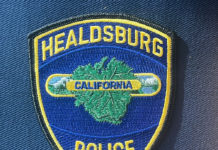Domestic violence, sex offenders, and missing persons are among
the most significant issues addressed in a slew of new laws
effective Jan. 1, 2011.
Legislation to do with possession of marijuana, firearms and
truancy are also about to change, and motorists will face a handful
of new traffic laws.
• SB 782 by Sen. Leland Yee, D-San Francisco, makes it illegal
for landlords to evict tenants who are victims of domestic
violence, sexual assault or stalking.
This law also requires that the landlord change the exterior
locks on a protected tenants dwelling within 24 hours after the
tenant provides a written request and supporting documentation from
the court or police.
• Chelsea’s Law (AB 1844) — which took effect in September when
it was signed immediately by Gov. Arnold Schwarzenegger — is named
after a 17-year-old girl who in February was raped and murdered in
a San Diego County park by a convicted child molester.
The law, authored by Assemblyman Nathan Fletcher, R-San Diego,
increases penalties for sex offenders who target minors.
“Chelsea’s Law will enact a one-strike, life without parole
sentencing option for the most dangerous sexual offenders; increase
sentences for forcible sex crimes; increase parole terms for those
who target children under the age of 14, including lifetime parole;
restrict sex offenders from entering parks; and require sex
offenders’ risk assessment scores be made public through the
Megan’s Law website,” among other penalties, according to a press
release from the Governor’s Office.
• The young and the innocent are also the driving force behind
three new laws (AB 33, AB 34 and AB 1022) that are intended to
speed up the process when searching for missing children.
AB 33 requires law enforcement agencies to adopt a checklist and
establish uniform guidelines for missing person investigations; AB
34 requires a law enforcement agency receiving a credible police
report regarding a missing person to transmit the information to
the California Violent Crime Information Center and the National
Crime Information Center databases within two hours after the
receipt of the report. The law also allows the state to provide
information about missing children to the National Missing and
Unidentified Persons System (NamUs), according to the Governor’s
Office. Lastly, AB 1022 creates a Department of Justice missing
persons coordinator.
• Parents of habitually truant school-aged children are the
subject of SB 1317, by Sen. Mark Leno, D-San Francisco. Under this
new truancy law, parents or guardians can be charged with
misdemeanors if their children, age 6 or older in kindergarten
through eighth grade, miss too much school. They can face up to a
year in jail and a $2,000 fine.
• On a more positive note, AB 12 makes foster youth eligible for
state services until they turn 21. Previously they lost all
benefits when they turned 18.
• Bakers will no longer be allowed to use trans fat oil in their
cooking. AB 97, a bill authored by Assemblyman Tony Mendoza last
year, prohibited any restaurant or eatery from using oils,
shortening or margarine containing artificial trans fats. Bakeries
had an extra year to stop using trans fats to deep fry yeast dough
or cake batter.
• A new law reducing penalties for possession of small amounts
of marijuana likely comes as good news to a booming population
found locally and in neighboring counties. (Mendocino, Humboldt and
Trinity counties, known as the Emerald Triangle, are reportedly the
three biggest marijuana-producing counties in the United
States).
Under SB 1449, by Sen. Mark Leno, D-San Francisco, possession of
up to one ounce of marijuana is reduced from a misdemeanor to an
infraction. It will be handled just like a traffic ticket. There is
still a fine of up to $100, but offenders do not get arrested,
meaning there is no arrest record attached to the violation, and
they do not have to appear in court.
• California’s motoring public also faces a handful of new laws,
including the following: Under AB 1952, anyone under the age of 21
who wants to obtain a motorcycle permit must complete a motorcycle
safety course administered by the CHP.
AB 1942 allows automakers and vehicle owners to place video
recording devices on their vehicles’ windshields. The law also
requires that a vehicle equipped with one must have a notice posted
in a visible location that states that a passenger’s conversation
may be recorded, according to a CHP press release.
Under SB 839, an emergency alert system much like the AMBER
Alert can be activated when a law enforcement officer has been
killed, suffers serious bodily injury, or is assaulted with a
deadly weapon, and the suspect has fled the scene.
The Blue Alerts can also be activated if it is determined the
suspect poses an imminent threat to the public or other law
enforcement personnel, or if a detailed description of the
suspect’s vehicle or license plate is available for broadcast, the
press release states.
Several new and amended laws pertaining to firearms also become
effective in 2011. For information contact the California State
Capitol Legislative Bill Room at (916) 445-2323, or for the full
text of these bills — or any of California’s new laws — go to
www.leginfo.ca.gov and
click on Official California Legislative Information, then click on
New Laws Report.








